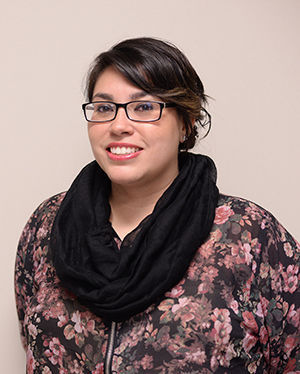Opinion: Why I Do What I Do

Why I Do What I Do
Some of my readers may have already noticed a common theme in the subject matter I continually write about in my columns: identity.
More specifically, I write about racial identity.
While some may roll their eyes at this effort or claim it’s unnecessary, I wouldn’t be up at 4:32 AM with my stomach growling, tapping away on my laptop if I didn’t have a deep personal commitment to this particular theme.
I need no evidence to prove to me that it’s necessary work.
Part of the reason may be obvious: I’m Chicana and so my identity informed me yesterday, it informs me today, and it will continue to inform me tomorrow when I wake up.
Though it remains a constant, it also is fluid depending on the space I am occupying.
But a larger part of the reason is that I also want to teach in a university setting someday.
I believe that part of the necessary job skills in being an effective teacher is a personal commitment to serving alongside people including students and the willingness to never stop learning from those you are serving.
In my journey of lifelong service and the attempt to acquire knowledge along the way, I have gone through many transitions.
I remember first getting heavily involved with the secular community on campus years ago as I felt it almost obligatory when I finally let go of religious faith and peacefully came to the personal conclusion that God no longer existed in my world.
From that involvement, came a deeper understanding of my commitment to humanity as a whole but work in the secular community was not without its flaws. One of those flaws being unwillingness from some to go beyond being Godless to being an advocate for social justice.
Back then the two major issues I strove to speak up for were feminism and racial justice; the two being intimately linked to my understanding of power dynamics and structural oppression.
Fast forward to the present and I’m still deeply invested in both because if I strive for anything, it is consistency both in thought and in action.
So, I can’t sit back idly when I read about countless murder after murder of unarmed black and brown men, women, teenagers and children.
I can’t sit back idly while I witness beloved friends, some of whom I would even call family at this point, experience mild to extreme forms of discrimination.
I can’t sit back idly when my personal identity is called in question.
Why?
Well, the only answer I can give that is succinct enough, is a phrase I heard from Dr. Steve Perry last month at the end of Black History Month programming: “Who you are on campus is who you will be in the world.”
In light of the recent events that took place in Oklahoma, it’s becoming more and more clear to me that none of us can afford to sit back idly while grave injustices unfold on our own university campuses if we hope to see an equitable world in the future.
Amanda Paniagua is a graduate art history major. Contact her at [email protected].


